RESEARCH & FACULTY
CARDIOVASCULAR & PULMONARY BIOLOGY
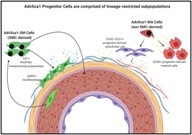
The cardiovascular system includes the heart and all blood vessels delivering oxygen to tissues and the transporting metabolic waste products to be cleared from the body. The pulmonary system includes the trachea (windpipe), the lungs, the muscles and bones of the rib cage, and the diaphragm. It transports oxygen to the blood and extracts carbon dioxide, along with directly interacting with external pollutants, bacteria, and viruses. Faculty study the molecular features that lead to diseased tissue and aim to leverage this information to design novel treatments and therapeutic strategies.

Elan Eisenmesser PhD
Associate Professor
- Biochemistry (SOM)
STRUCTURAL BIOLOGY
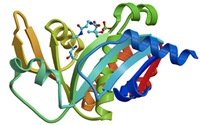 Many of the faculty utilize multi-omics data and molecular structure to define how and where pharmacological processes occur. Knowledge of the omics profiles from an individual allows us to define the target of pharmacologically important molecules. Defining the molecular structure of the target protein allows pharmacological mechanisms of molecules to be defined. The centers and facilities that aid in this research include the Genomics Shared Resource, Mass Spectrometry Center, Nuclear Magnetic Resonance Center, Electron Microscopy Facility, and the X-ray Crystallography Center.
Many of the faculty utilize multi-omics data and molecular structure to define how and where pharmacological processes occur. Knowledge of the omics profiles from an individual allows us to define the target of pharmacologically important molecules. Defining the molecular structure of the target protein allows pharmacological mechanisms of molecules to be defined. The centers and facilities that aid in this research include the Genomics Shared Resource, Mass Spectrometry Center, Nuclear Magnetic Resonance Center, Electron Microscopy Facility, and the X-ray Crystallography Center.

Elan Eisenmesser PhD
Associate Professor
- Biochemistry (SOM)
SIGNAL TRANSDUCTION
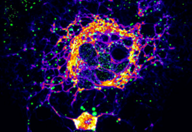
How the activities of different cell types are harmonized to provide integrated responses in an organism is the key feature that allows multi-celled organisms to flourish. This coordination is achieved by the activities of an array of neurotransmitters, hormones, and growth factors, which operate on timescales of milliseconds to days. The study of these processes is known as signal transduction, or cellular signaling, one of the key areas of biomedical research that tells us about normal functions and therapeutic opportunities. The majority of faculty study cellular signaling at some level, including ion channels, signal transduction pathways, second messengers, growth factor-signaling, and the cell cycle.

Elan Eisenmesser PhD
Associate Professor
- Biochemistry (SOM)
CANCER BIOLOGY
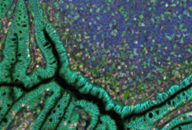 Our faculty are developing a detailed understanding of the underlying
molecular mechanisms that drive cancer cell behavior and then applying this
understanding to develop better, more tailored treatments for cancer. Faculty
are also members of the University of Colorado Cancer Center to translate
findings into the clinic. Specific areas of cancer biology research include: cancer drug resistance, metastasis, and tumor cell growth and death. We leverage cutting-edge technologies, in single cell multi-omic approaches, multispectral imaging, cell biology, structural biology, biochemistry, genetics, and systems biology.
Our faculty are developing a detailed understanding of the underlying
molecular mechanisms that drive cancer cell behavior and then applying this
understanding to develop better, more tailored treatments for cancer. Faculty
are also members of the University of Colorado Cancer Center to translate
findings into the clinic. Specific areas of cancer biology research include: cancer drug resistance, metastasis, and tumor cell growth and death. We leverage cutting-edge technologies, in single cell multi-omic approaches, multispectral imaging, cell biology, structural biology, biochemistry, genetics, and systems biology.

Elan Eisenmesser PhD
Associate Professor
- Biochemistry (SOM)
COMPUTATIONAL BIOLOGY & PERSONALIZED MEDICINE
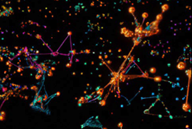
Faculty utilize the human genome, transcriptome, proteome, metabolome, and molecular structure to define how and where pharmacological processes occur. Studying biological systems is complex and drawing statistical inferences from large compendium data of genetic factors requires novel computational methodology and compute infrastructure. Faculty are designing the methods to translate these large datasets into knowledge.
Specific areas of computational biology and personalized medicine include systems pharmacology, development of network inference methods, prediction of novel gene function, genome and transcriptome-wide association studies, machine learning and artificial intelligence, and structure modeling. Faculty also have a strong interest in the ethical concerns raised with applying artificial intelligence models and the collection of large training and testing datasets.

Elan Eisenmesser PhD
Associate Professor
- Biochemistry (SOM)
NEUROPHARMACOLOGY
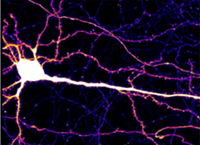
Faculty working in the area of neuroscience and neuropharmacology focus their research on characterizing the cellular and molecular mechanisms that underlie neuronal function and behavior. Because neuroscience/neuropharmacology is an increasingly integrative discipline, we incorporate cutting-edge multidisciplinary approaches including animal behavior, advanced microscopy, in vivo measurements of neural activity, electrophysiology, optogenetics and molecular and cell biology. One of the strengths of our faculty lies in the fact that they have experience in a number of different scientific disciplines.
Specific areas of neuropharmacology research at CU Anschutz include the study of molecular memory and synaptic plasticity, neurodegenerative diseases and molecular mechanisms that control synaptic transmission and neuromodulation. In addition, the pharmacology faculty has a particularly strong interest in the neuropharmacology of psychedelics and drugs of abuse.

Elan Eisenmesser PhD
Associate Professor
- Biochemistry (SOM)
PHARMACOLOGY AFFILIATE FACULTY
PharMM affiliated faculty are not available to serve as primary PhD mentors, but are available to serve on mentoring teams and student committees.

Elan Eisenmesser PhD
Associate Professor
- Biochemistry (SOM)